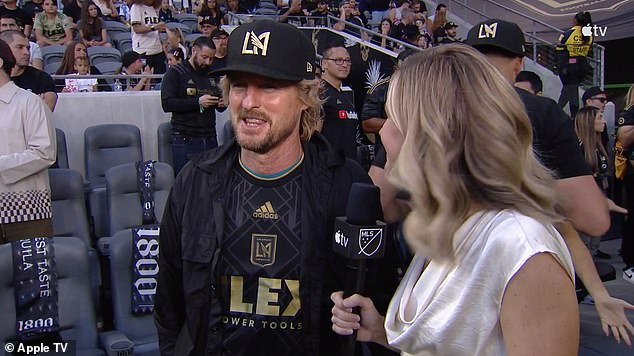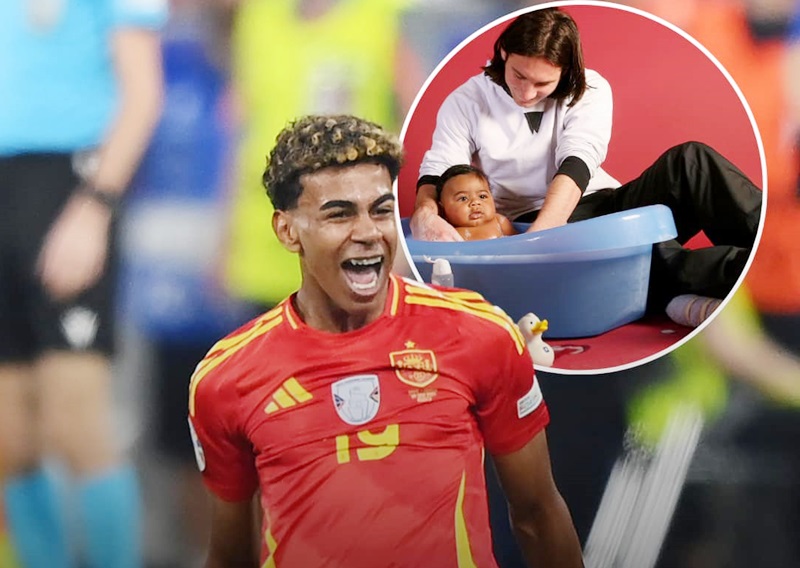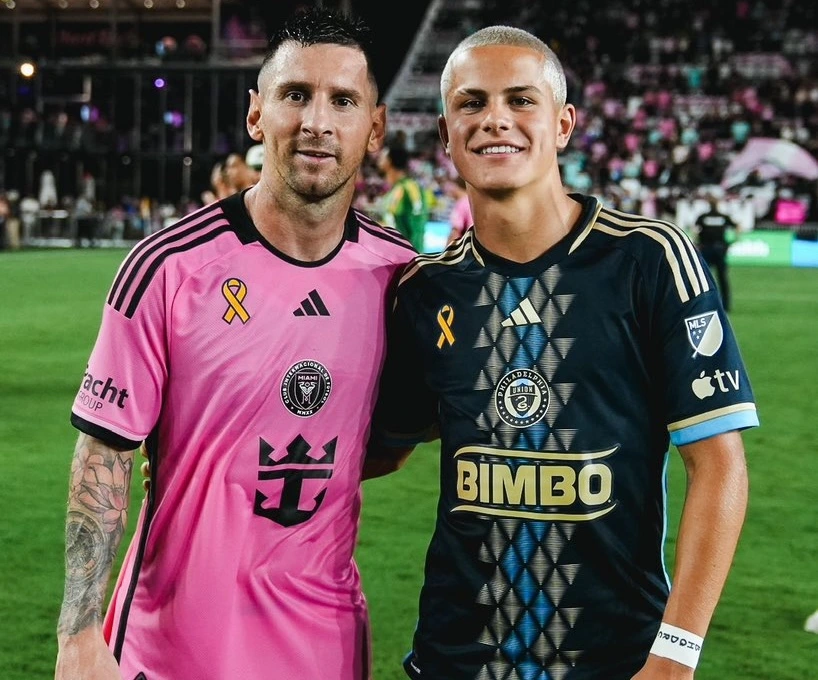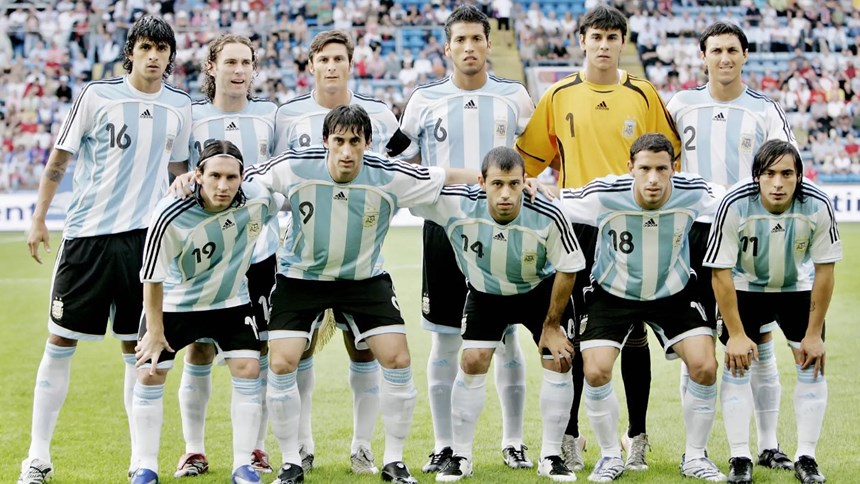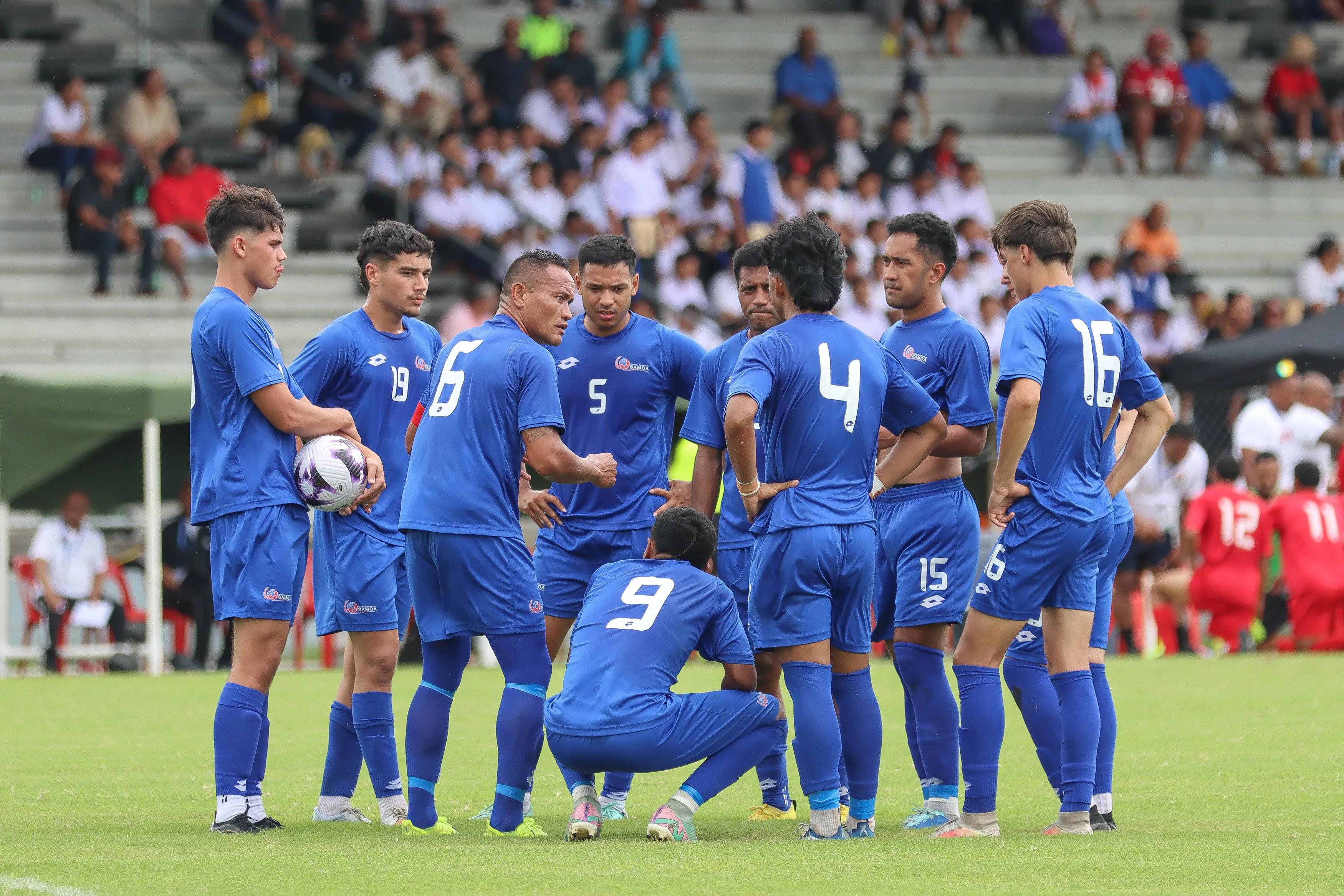
-
Andrew Setefano is Samoa’s captain and most-capped player
-
Still going strong at 37 and driven to push his nation to new heights
-
Samoa host American Samoa in the first round of OFC World Cup qualification
Andrew Setefano admits it can be a bit tough finding time for sleep.
An average week for Samoa’s national captain goes something like this; up daily at dawn for exercise or a hike, five full shifts as an executive manager for a telecommunications company, football training and matches, women’s football coaching, touch rugby training followed by games, a couple of track and field sessions, volleyball training and then competition on the court. Time permitting, the former national futsal goalkeeper might also squeeze in a few reps on the boards.
That kind of discipline can take players to the top; maintaining it for close to three decades is what makes special players great and, in the annals of Samoan sporting folklore, the 37-year-old defender is up there with the very best.
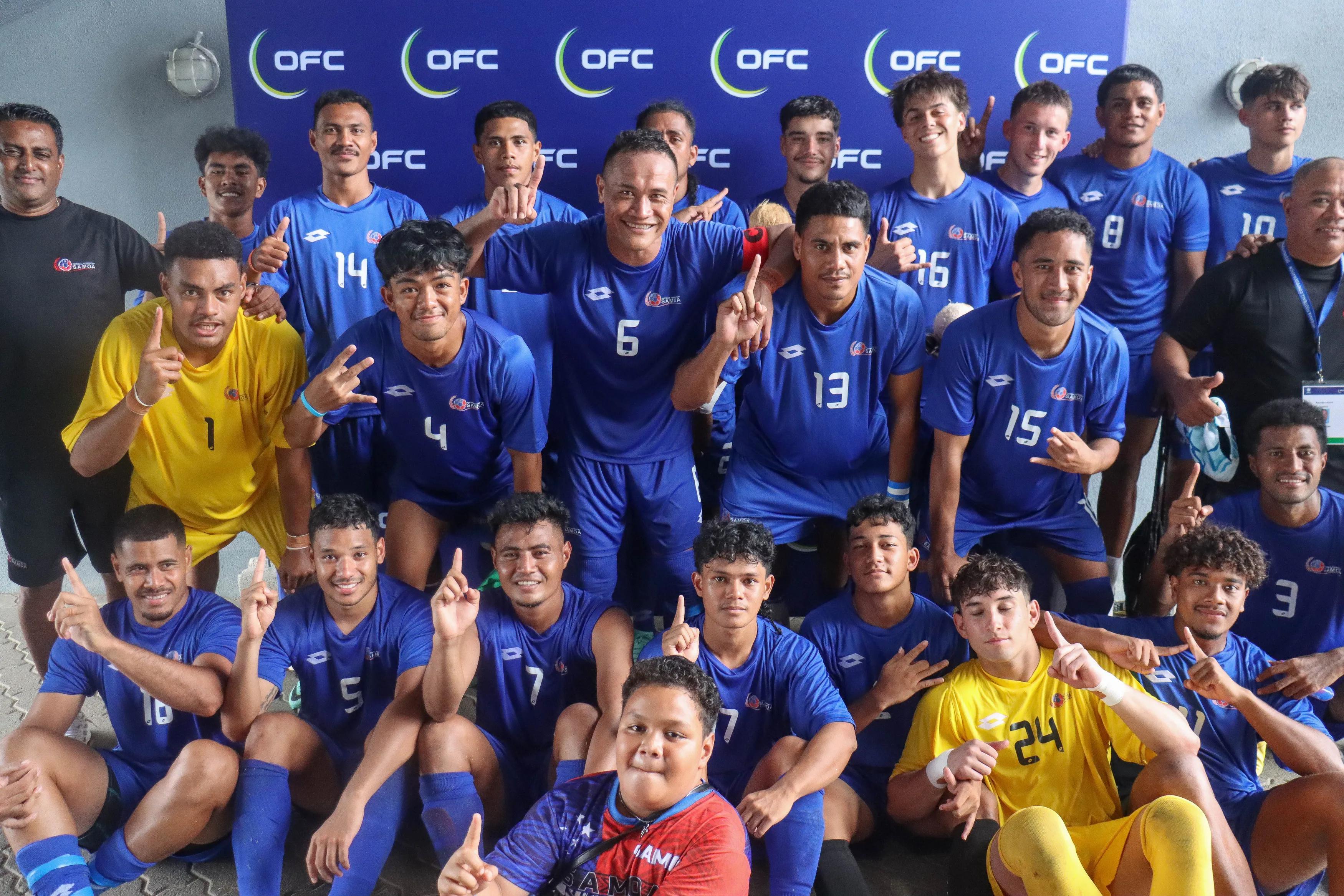
Setefano is his nation’s most-capped player, a visible link between past and present, a father figure and agenda-setter for an ambitious Samoan side. He’s also keenly aware of what it means to pull on the national shirt, as he explains to FIFA.
“When you put that jersey on it goes back to before we got independence, we were slaves before, we were colonised. In 1962 we got our independence, our freedom and every time you wear the national shirt you remember your ancestors who worked so hard to get you where you are.
“If they didn’t do that we would still be a colony, under someone else’s rule. It’s why I always get so emotional, why you see me crying for the national anthem, because it comes from a place of freedom. From knowing that we have to do something for our country, including those that have passed away. Wearing the jersey is paying back what other generations did for us, that pride of who we are.”
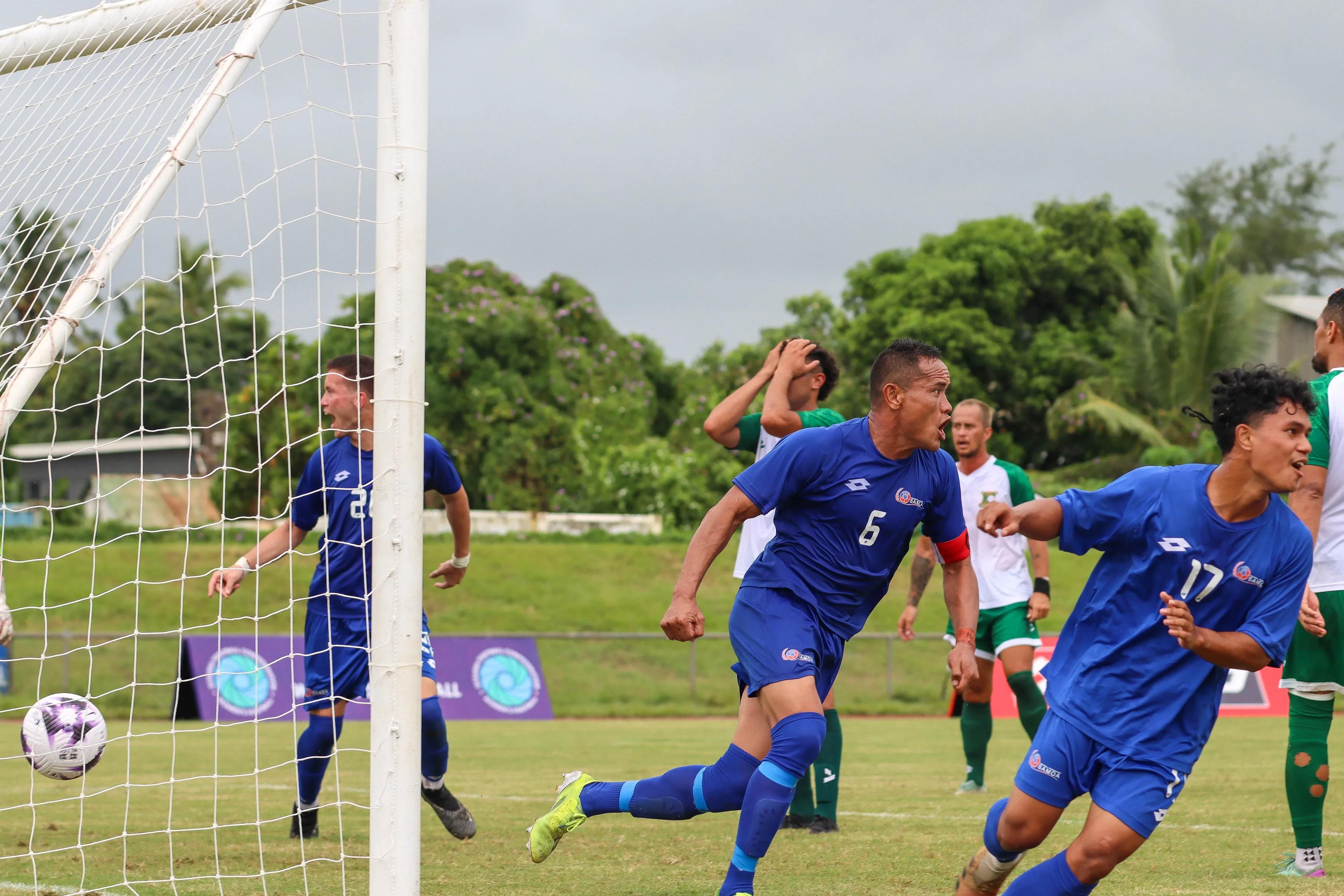
A tiny speck in the turquoise waters of the South Pacific, Samoa proudly portrays itself as ‘paradise on earth’ yet it’s an abode where football has often had to fight for space. Jostling for attention behind rugby, in recent years success in the weightlifting arena has also seen the clean and jerk brigade muscle in on football’s turf.
The upcoming first round of OFC qualification for the FIFA World Cup 26™ though offers Samoa a chance to start to change that narrative, as Setefano outlines.
“In the past those sports have put Samoa on the map but that’s what we want to do with football. What I always tell people is that we will get there, one day we will definitely get there.
“Already I can see the progress, you know, a couple of years ago we were losing by eight or nine goals to the likes of Tahiti but now our results are much better and we only lost 2-0 against them in the OFC Nations Cup this past June.”
The immediate challenge for Samoa is a home clash with their nearest neighbours – and fierce rivals – American Samoa. Separated by just 40 kilometres of ocean, it’s a rivalry steeped in history, as Setefano explains.
“It’s always a rivalry, bro. We are western Samoa and that’s American Samoa, they are under America and we are free people. We always have that rivalry with each other. It’s going to be a really big crowd, when we host matches it’s full of all kinds of crazy people. It will be good for the local boys, some maybe making their debut, and even though the pressure is on our shoulders we’re ready for it.”
Should Samoa emerge on top in that clash they’ll face the winner of the other first round fixture in the form of the Cook Islands or Tonga for a spot in the group stage. From there, history awaits, with the OFC possessing a direct slot for the World Cup for the first time, with an additional berth available via the FIFA Intercontinental Play-off Tournament.
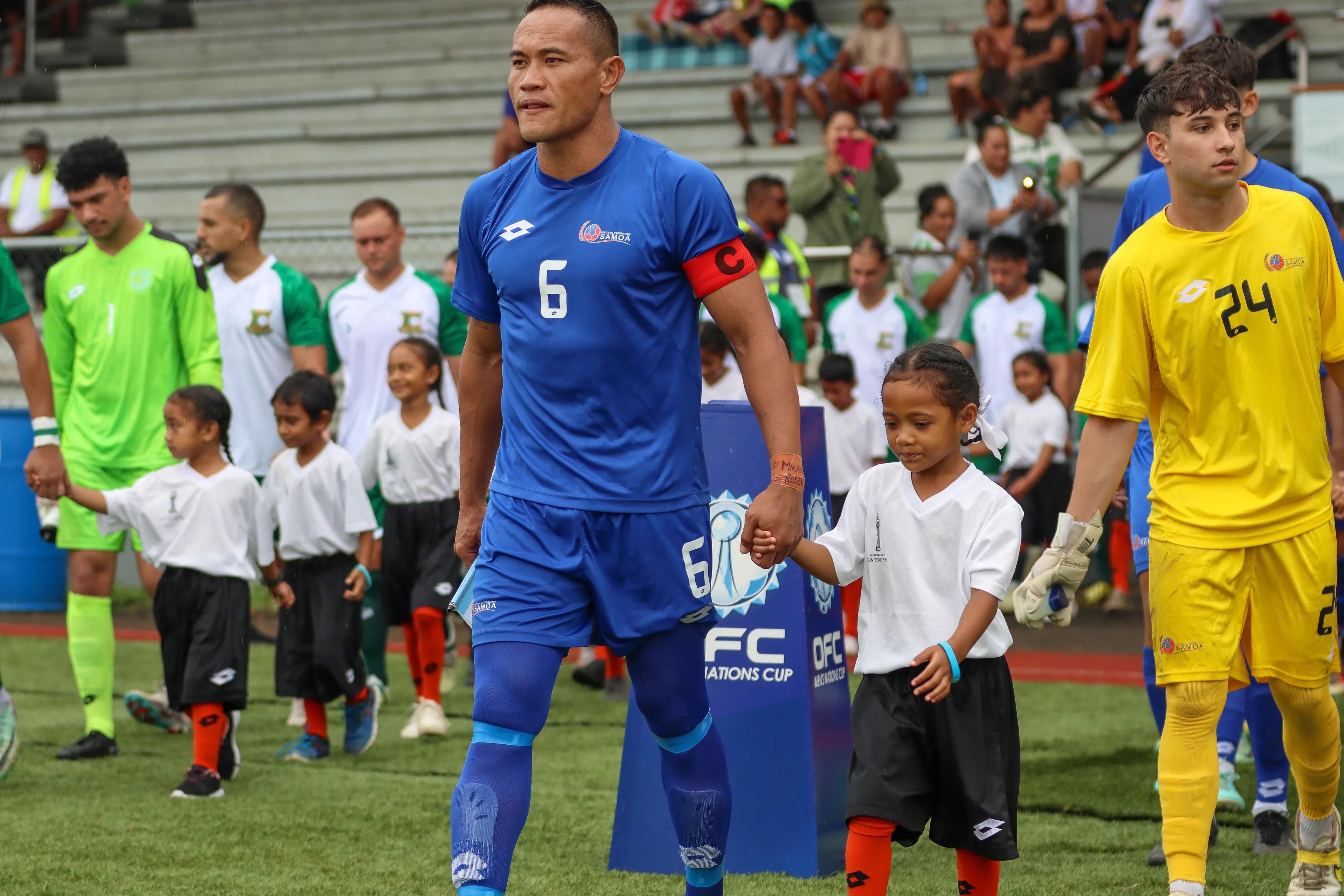
Given that Samoa have only twice reached the second round of World Cup qualifying, and lost all six matches at that stage, Setefano is realistic about their current place in the Oceania pecking order. He knows though just how important the next couple of weeks are in demonstrating the nation’s growth.
“To progress we need to beat the bigger nations in our region, plain and simple. We don’t want to be at the bottom anymore, we need to get into that top tier of Oceania nations and stay there so that starts with making sure we get through this first round.
“Reaching the second round is like the reaching the World Cup for us. If we could make it to the final round that’s like winning the World Cup for us; it means that we would have done it and made history.”
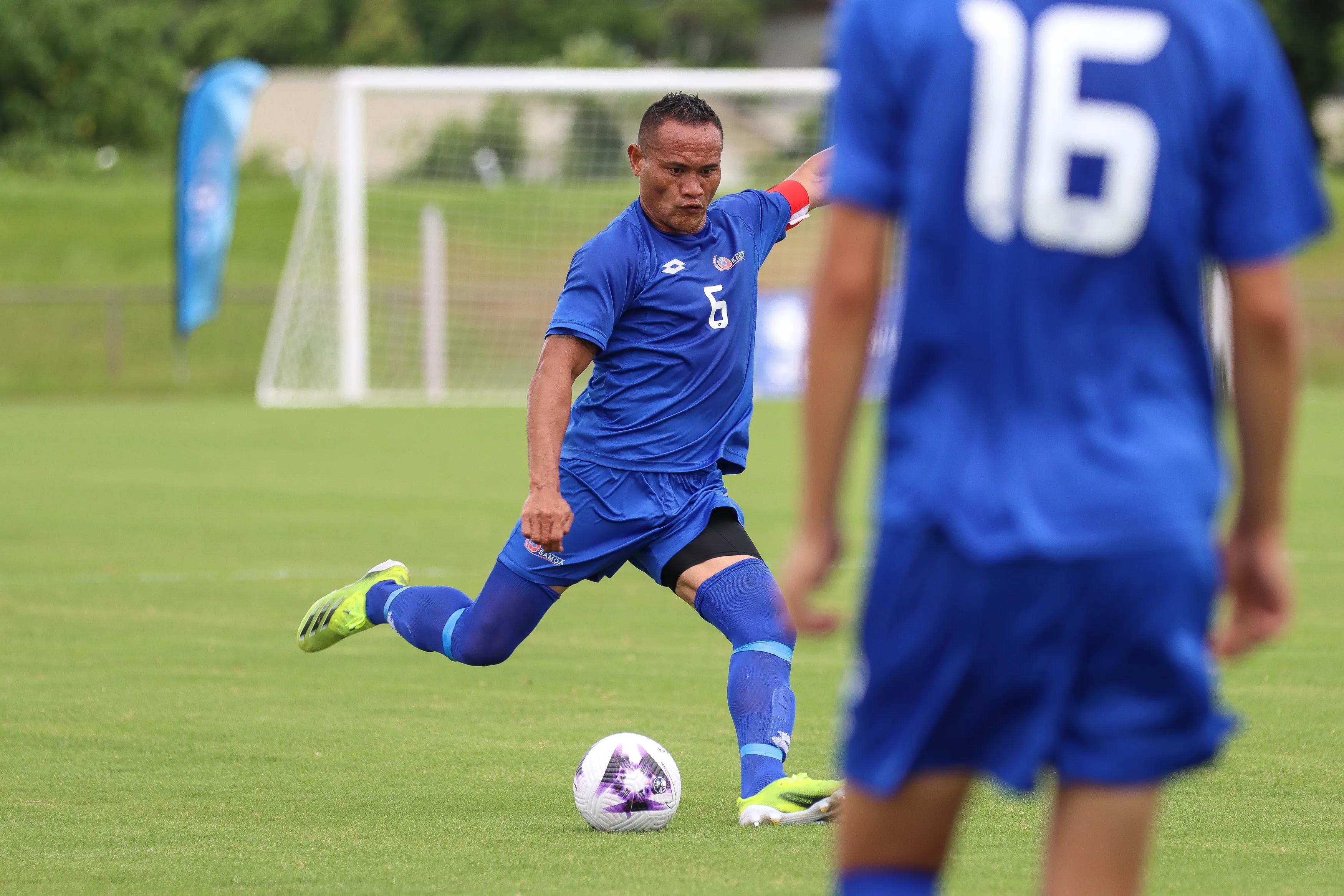
Whether the man known as the ‘Joker’ – after he made his senior club debut as a 12-year-old with a Ronaldo 1998 hairdo, oversized shirt, socks and shin pads – would still be there for a possible tilt at the global showpiece is a question only he can answer.
The answer is emphatic: “I have a positive mindset that I can keep going and that whoever will come along I will make sure that nobody will take my spot. Even if I can’t make it to the professional level that doesn’t matter to me, it’s just a question of always chasing my goals.
“I will keep playing until I can’t do it anymore; even if I say I’m going to quit, I can’t quit. I love the game and I have to play it. As long as I’m still walking, I’ll still be playing.”

